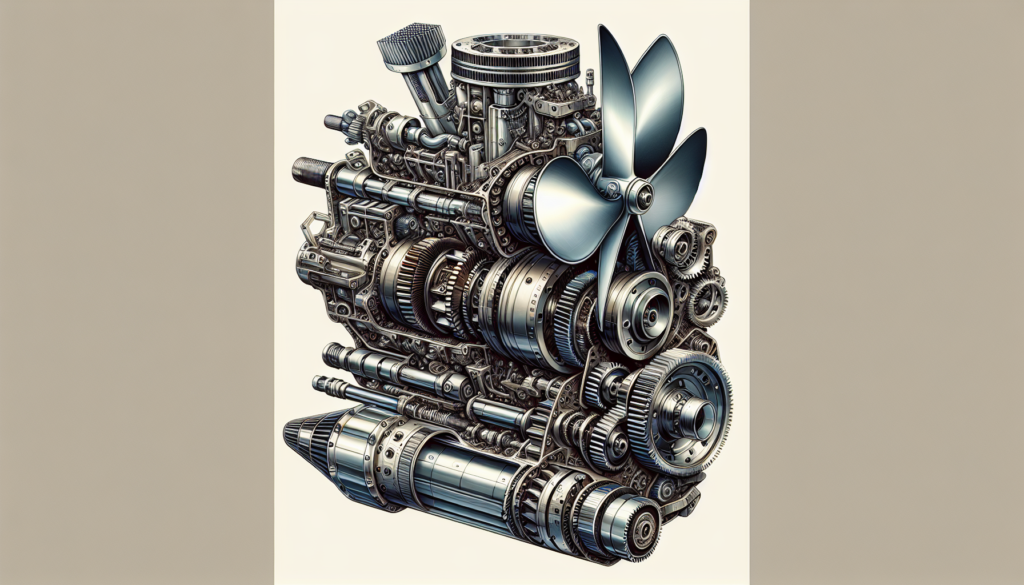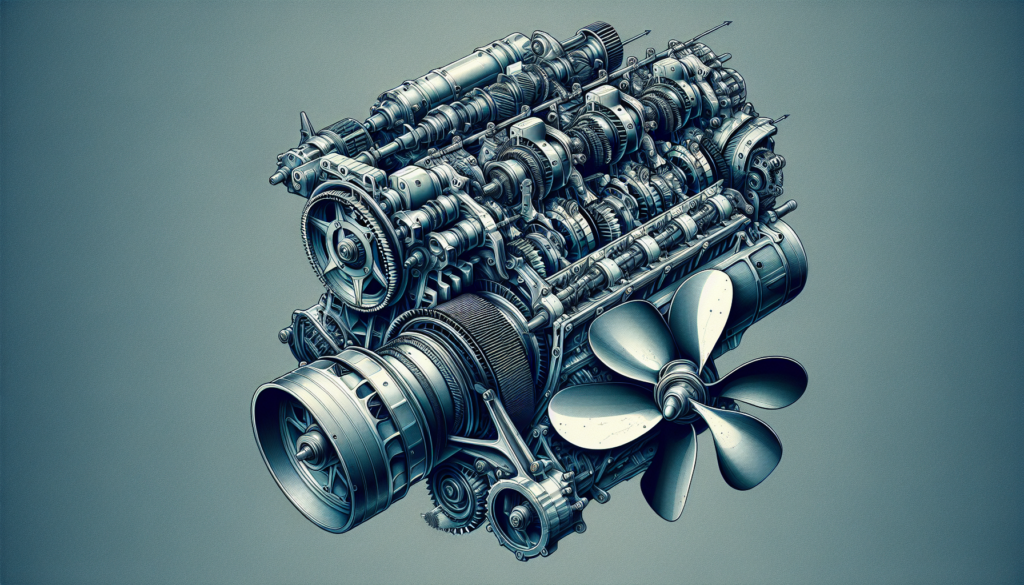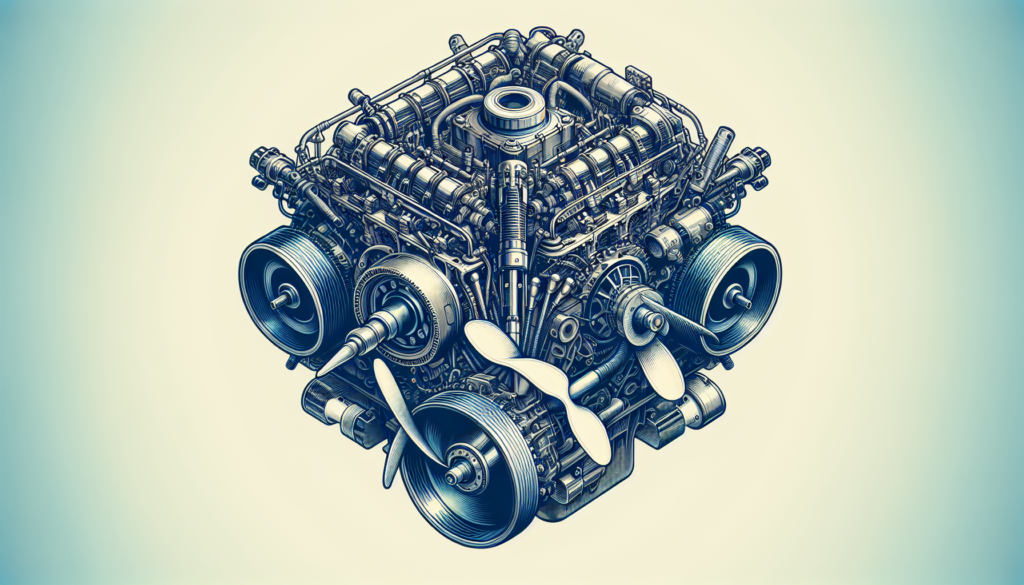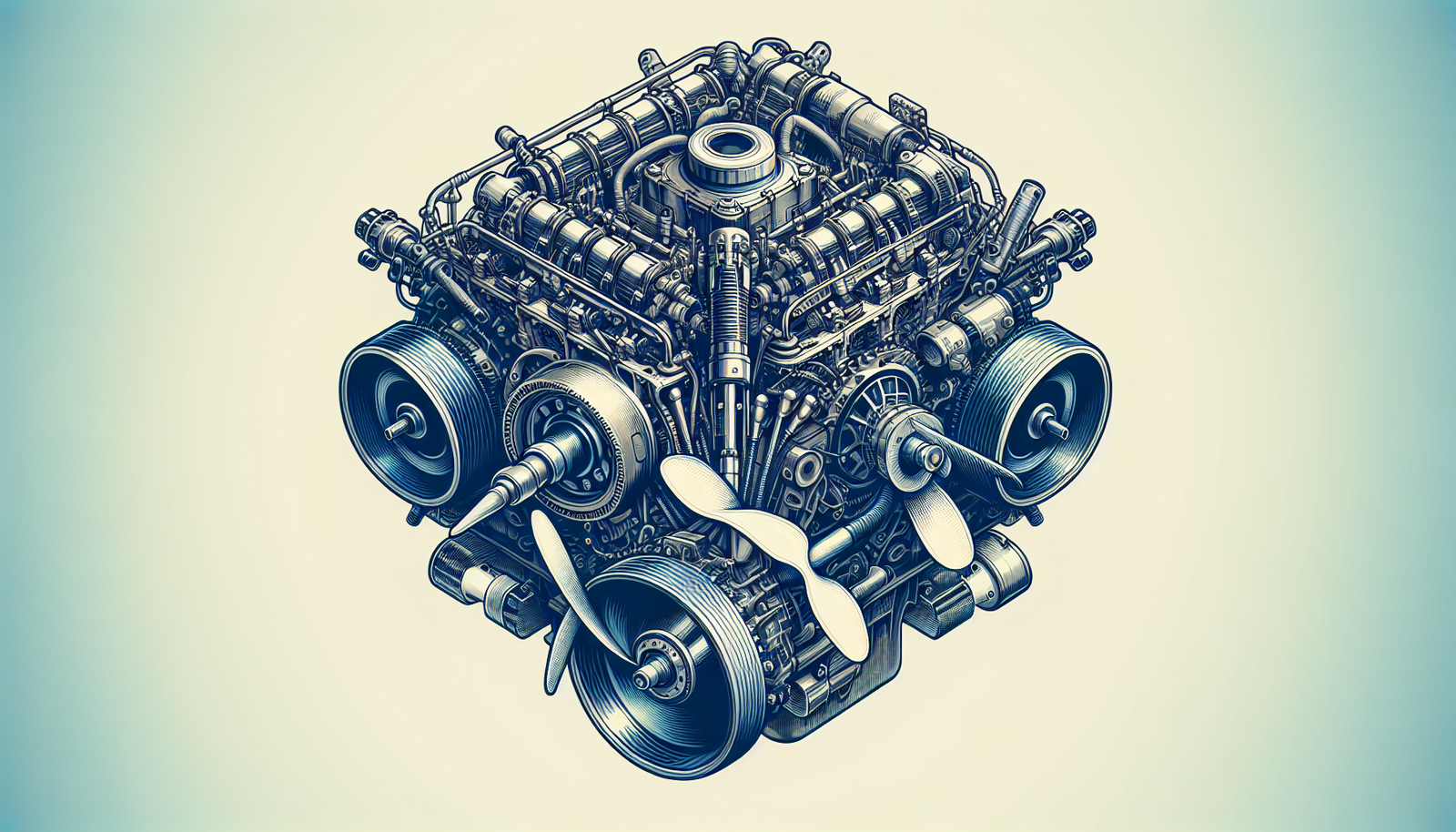You’re eager to get out on the water, but the troubling sound from your boat engine is making you apprehensive – not the best way to start your day, is it? Don’t worry, we are here to help. We’ve compiled an easy-to-follow guide that will arm you with the knowledge needed to troubleshoot and solve the mysterious noise coming from your beloved powerboat. You’ll find simple steps and practical advice that aim to simplify this process, possibly saving you precious time and money. So let’s get you back on the water, shall we? “Troubleshooting A Noisy Boat Engine” is just what you need in your boating repair arsenal.

Understanding the Boat Engine Noise
One thing every boater can agree on is the desire for a quiet, smoothly running engine. However, in reality, almost all boat engines make noise. While some sounds are normal, others can indicate a problem or failure in progress. Learning to decipher these noises can save you the hassle of serious engine damage, hefty repair bills, and keep you safe on the water.
Basics of Boat Engine Noise
Understanding boat engine noise begins with understanding that different noises often point to different types of problems. Whether it’s a whistle, tick, clank, or hum, each sound is a clue to your boat’s overall health. Think of it as a language your boat engine uses to communicate with you – while some noises might just be your boat chattering away, others can symbolize distress calls.
Common noises and what they indicate
Some common engine noises include squeals, that can indicate a loose belt or pulley; thudding or ticking, could be a sign that your engine isn’t getting enough oil. An excessive clicking or rattling noise signal might point to detonation (overheating causing the fuel-air mixture to ignite too early), and a loud bang can indicate a backfire.
Importance of Addressing Boat Engine Noise
Ignoring those noises can lead to catastrophic failure causing damage to your boat or even physical harm to you and your passengers. By attending to these sounds promptly, you not only ensure a quieter and smoother ride but also potentially avert dangerous situations.
Boat Engine Types and Their Common Noises
Not all boat engines are the same, and different engine types can produce different kinds of noises. To accurately diagnose engine problems, it’s important to understand the typical sounds made by different types of boat engines.
Inboard Engines
Inboard engines tend to create more of a humming or low growling sound when running properly. An unusual ticking, knocking, or clattering sound can be a signal of malfunctioning components.
Outboard Engines
A well-tuned outboard engine has a distinctive growl. If you start hearing high-pitched squeals, bubbling, hissing, or knocking, there’s a good chance something is off.
Diesel Engines
Known for their distinctive knocking sound, diesel engines running properly will emit a constant, rhythmic noise. However, inconsistent knocking, or metallic clangs can indicate serious internal problems.
Gasoline Engines
Gasoline engines usually purr smoothly but a rough idle, backfires, ticking sounds, or uncharacteristic loudness could denote various issues ranging from minor adjustments to substantial engine repair.

Detecting Boat Engine Noise Source
Discovering the source of boat engine noise can be a bit of a detective game. It involves using all your senses, specialized equipment, and even intuition.
Listening to Your Boat Engine
Regularly listen to your boat engine. Familiarize yourself with the normal operational sounds, so that when things don’t sound right, you’re able to discern the difference.
Visual Inspection of the Engine
Visual inspection can reveal a lot about the source of a noise. Regularly inspect coolant levels, oil condition, belt and pulley condition, to avoid future issues.
Using Specialized Equipment
To determine the exact source of an engine noise, you may need to use specialized equipment like a mechanic’s stethoscope. These devices are able to pinpoint noises that may otherwise blend in with the overall engine sound.
Common Causes of Boat Engine Noise
There are countless factors that can contribute to unwarranted boat engine noise, most commonly due to mechanical failures, poor maintenance, and worn or broken parts.
Mechanical Failures
Mechanical failures such as a damaged gear, faulty starter or alternator, belt slippages can lead to boat engine noise.
Poor Maintenance
Skipping routine maintenance chores like checking the oil regularly, not changing filters as necessary, ignoring coolant levels or neglecting to grease key parts can lead to unnecessary engine noise.
Engine Misalignment
Over time, a boat engine can drift from its optimal alignment. Misalignment can cause vibration and noise, as well as wear on the engine mounts and transmission.
Engine Overheating
An overheated engine can make all kinds of noises, from knocking and ticking to hissing or bubbling. Always keep an eye on the temperature gauge, and if your engine is running hot, figure out why.
Worn or Broken Parts
Almost any part that’s getting worn out or starting to fail can make noise. A weakened belt might squeal, a cylinder with too much clearance might clatter, or a failing bearing might rumble or whine.

Dealing with Mechanical Failures
Mechanical failures contribute significantly to boat engine noise. Locating and addressing these issues promptly can ward off more significant damage.
Identifying Mechanical Failures
This could involve listening to your engine, using specialized equipment, or just noticing when your engine’s performance changes. Any change in noise, smell, or behavior is a sign that something might need attention.
Steps to Address Mechanical Issues
Depending on the severity, you might be able to fix the problem yourself. Look for loose belts or pulleys, check your spark plugs, inspect the fuel system, and see if fixing those issues resolves the noise.
When to Seek Professional Help
When all else fails, or if you’re not comfortable doing your own engine work, seek professional help. A competent marine mechanic will have the tools and experience necessary to diagnose and fix whatever issues your boat engine may have.
Maintaining the Boat Engine
Regular maintenance is a guarantee against boat engine noise and the key to preserving your engine’s long-term performance.
Regular Maintenance Schedule
Follow the manufacturer’s recommended maintenance schedule. This often includes checking the oil, the coolant, the fuel system, the electrical connections, and other key systems at regular intervals.
Importance of Regular Engine Check-up
Regular check-ups keep you on top of your boat’s performance and nip any potential issues in the bud before they mature into bigger problems.
Proper Cleaning and Oiling
Keeping the engine clean helps it run more smoothly, reducing noise. Similarly, keeping all moving parts well-lubricated helps reduce the friction that can cause noise and damage.

Addressing Engine Misalignment
Engine misalignment is a common issue that can cause increased noise and vibration if left unattended.
Signs of Engine Misalignment
These may include a rocking boat while at speed, uneven propeller wear, or even increased fuel consumption. Noise or vibration that increases with the speed of the boat is a common indicator.
Steps to Correct Engine Misalignment
Aligning a boat engine can be complicated or time-consuming, but generally involves adjusting the mounts to bring the engine back into correct alignment with the shaft.
Tools needed for Re-alignment
This process may require tools including feeler gauges, a dial indicator, a spanner, and potentially even a hydraulic lift, depending on the size and weight of your engine.
Solving Overheating Issues
Overheating is a common cause of boat engine noise. It’s also a potential sign that your engine is in danger, so it’s important to handle it properly.
Causes of Engine Overheating
Overheating can be caused by a variety of things, from a clogged cooling system to a failing water pump, to simply running the engine too hard for too long.
Preventing Overheating
Regular maintenance, particularly of the cooling system, is key to preventing overheating. In addition, understand your engine’s limits and avoid pushing it too hard.
Coolant System Repairs
If your cooling system is causing overheating, you may need to clean out accumulated coolant, replace a thermostat, or even install a new water pump.
Managing Worn or Broken Parts
Worn or broken parts can cause abnormal boat engine noise. If left unattended, one faulty component can wreak havoc on all others in no time.
Identifying Worn or Broken Parts
Usually, the engine noise can give you an idea of which part might be failing. Visual inspection and using diagnostic equipment can also help you find worn or broken parts.
Repairing vs Replacing Parts
In some cases, a worn part can be repaired – like a belt that just needs to be tightened. In other cases, the part might need to be replaced. As a general rule, if a part is badly worn or broken it’s usually safer (and sometimes cheaper) to replace it.
Recommended Spare Parts to Keep
Keeping essential spare parts onboard can save you from emergency situations. Spare belts, filters, spark plugs, and coolant and oil are among the basics you should always have on hand.
Preventing Noisy Boat Engines
Preventing unwanted engine noise is inherently better than having to address it. There are several ways to keep your boat engine quiet.
Proper Boat Storage
Proper storage of your boat when it’s not in use can prevent exposure to damaging elements and help avoid unnecessary wear and tear. Ideally, your boat should be covered and stored out of the water.
Exercises for Healthier Boat Engine
Just like it’s important for you to exercise regularly, your boat engine also needs regular runs. Periodic running helps to keep your engine in a dynamic shape and increases its lifespan.
Investing in High-quality Boat Parts
While it might seem more expensive initially, investing in high-quality boat parts will pay off in the long run. Higher quality parts generally last longer, and most importantly, perform better, which in turn reduces noise. Various factors contribute to boat engine noise and understanding these are crucial to ensuring a pleasant ride. With vigilant maintenance, prompt responses to potential problems, and a good understanding of your boat engine, you’ll be set for many smooth, quiet sails ahead.

